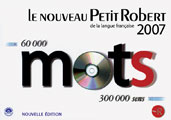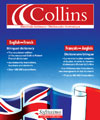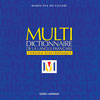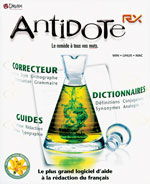|
|
softwareFrench-language software toolsLe Petit Robert, the Multi and the Robert-Collins are among the CD-ROM dictionaries that are winning over youth and others who see the benefits of finding the answers they need while at their computers. Everyone is by now accustomed to the correction tools that come with most word-processing software, but a new Canadian product, Antidote, seems set to revolutionize the way that students check and correct compositions.
She says the program’s quick response rewards students’ natural curiosity. “For example, if a child asks what a word means and is then told to look it up in an ordinary dictionary, this task may take several minutes. The next time, he or she may keep quiet. If the solution is just a click or two away and can be shared with the whole class, this child will rediscover the joy of learning.” Antidote can be customized to meet specific needs, enabling teachers to target specific problems. For instance, prior to one training session, student texts were reviewed to see how the software would respond and to determine the best approach for teachers to take. If past participle agreements were a student’s main problem, the program could search for any past participle problems in the text before tackling other issues, such as spelling errors.
“Boys are highly attracted to technology and technology helps us to reach them more easily,” says Michaud. While some teachers were already using Antidote as a spell checker, they realized after training that it had genuine pedagogical uses – helping students to discover new vocabulary, identify word families and revise their texts.
“The results obtained by this year’s graduates exceeded our expectations,” says principal Stéphane Proulx. “Antidote draws the attention of students to things they would not otherwise see. It’s an effective tool that makes a difference in their education experience and complements conventional remediation. Antidote, Druide Informatique, Montréal, 1-800-5-DRUIDE, www.antidote.info |













 Dolores Tam, a trainer for the company that developed the software, has already
given a hundred or so Antidote training sessions to teachers and teaching consultants
in Québec and Ontario, and has facilitated an equal number of workshops
for students.
Dolores Tam, a trainer for the company that developed the software, has already
given a hundred or so Antidote training sessions to teachers and teaching consultants
in Québec and Ontario, and has facilitated an equal number of workshops
for students. Jean-Pierre Michaud, a teaching consultant at the Conseil scolaire de district
catholique Centre-Sud, introduced Antidote as part of a board program that
focuses on boys and learning in order to address the significant difference
in literacy levels between boys and girls. Some schools in the board have installed
Antidote on classroom computers while others make it available in resource
centres or computer rooms.
Jean-Pierre Michaud, a teaching consultant at the Conseil scolaire de district
catholique Centre-Sud, introduced Antidote as part of a board program that
focuses on boys and learning in order to address the significant difference
in literacy levels between boys and girls. Some schools in the board have installed
Antidote on classroom computers while others make it available in resource
centres or computer rooms. “Boys in particular find this a more interesting way to improve their
writing,” adds Michaud. The board is installing the software for teaching
consultants and is considering installation on laptops for students who have
learning exceptionalities.
“Boys in particular find this a more interesting way to improve their
writing,” adds Michaud. The board is installing the software for teaching
consultants and is considering installation on laptops for students who have
learning exceptionalities. École Vanguard in Laval, Québec specializes in teaching students
with learning exceptionalities and has been using Antidote since February 2007.
The software is one element in an arsenal of tools available to teachers at
the school, both for classroom use and student assessment. It has proven to
be a success factor in improved scores and has decreased the time spent on
Ministry French examinations, the latter being a significant development because
Ministry approval is required to extend testing times.
École Vanguard in Laval, Québec specializes in teaching students
with learning exceptionalities and has been using Antidote since February 2007.
The software is one element in an arsenal of tools available to teachers at
the school, both for classroom use and student assessment. It has proven to
be a success factor in improved scores and has decreased the time spent on
Ministry French examinations, the latter being a significant development because
Ministry approval is required to extend testing times.